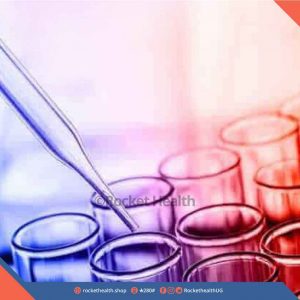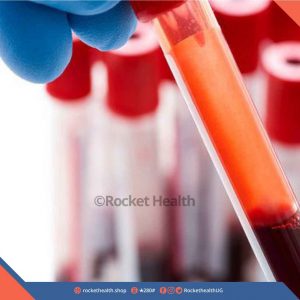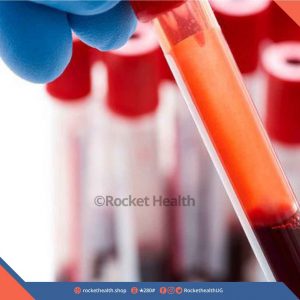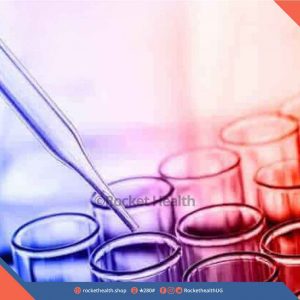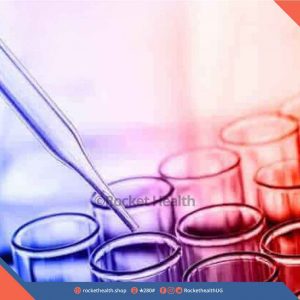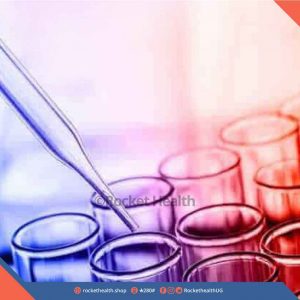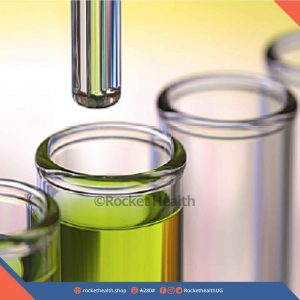No products in the cart.
PROSTATE SPECIFIC ANTIGEN (SCREENING)
This tests is used to screen for prostate cancer however, PSA levels are also affected by other things such as enlarges prostate, a urinary tract infection or recent ejaculation.
Blood.
No specific patient preparation protocol required.
Prostate specific antigen (PSA) is a protein produced primarily by cells in the prostate, a small gland that encircles the urethra in males and produces a fluid that makes up part of semen. Most of the PSA that the prostate produces is released into this fluid, but small amounts of it are also released into the bloodstream. Prostate-specific antigen test indicates the presence of prostate cancer, prostatitis or an enlarged prostate gland in men.
UGX 28,000PROSTATE SPECIFIC ANTIGEN (SCREENING)
UGX 28,000CA 15-3 (Breast Cancer)
This test measures Cancer antigen 15-3 in the blood. (CA 15-3) is a protein that is produced by normal breast cells but in many people with cancerous breast tumors, there is an increased production.
Blood.
No specific patient preparation protocol required. Inform the doctor if you are on any medications, have any allergies or underlying medical conditions before this test.
Cancer antigen 15-3 (CA 15-3) is a normal product of breast cells. Concentrations of CA 15-3 in the blood are often increased in breast cancer. CA 15-3 does not cause cancer; rather, it is a protein that is shed by the tumour cells, making it useful as a marker to follow the course of the cancer. CA 15-3 is rarely elevated in women with localised breast cancer but is increased in about 75% of those with breast cancer that has metastasised (spread to other organs). CA 15-3 also may be elevated in healthy people and in individuals with other cancers, or diseases, such as bowel cancer, lung cancer, cirrhosis, hepatitis, and benign breast disease.
UGX 75,000CA 15-3 (Breast Cancer)
UGX 75,000PROSTATE SPECIFIC ANTIGEN (FREE)
This test is used to determine risk of prostate cancer.
Blood.
No specific patient preparation protocol required.
Prostate specific antigen (PSA) is a protein produced primarily by cells in the prostate, a small gland that encircles the urethra in males and produces a fluid that makes up part of semen. Most of the PSA that the prostate produces is released into this fluid, but small amounts of it are also released into the bloodstream. Prostate-specific antigen test indicates the presence of prostate cancer, prostatitis or an enlarged prostate gland in men.
UGX 80,000PROSTATE SPECIFIC ANTIGEN (FREE)
UGX 80,000PROSTATE SPECIFIC ANTIGEN (TOTAL)
Test used to screen for prostate cancer.
Blood.
No specific patient preparation protocol required
Prostate specific antigen (PSA) is a protein produced primarily by cells in the prostate, a small gland that encircles the urethra in males and produces a fluid that makes up part of semen. Most of the PSA that the prostate produces is released into this fluid, but small amounts of it are also released into the bloodstream. Prostate-specific antigen test indicates the presence of prostate cancer, prostatitis or an enlarged prostate gland in men.
UGX 60,000PROSTATE SPECIFIC ANTIGEN (TOTAL)
UGX 60,000Carcino Embryonic Antigen (CEA)
A carcinoembryonic antigen (CEA) test is a blood test used to help diagnose and manage certain types of cancers during treatment.
Blood.
No specific patient preparation protocol required. Inform the doctor if you are on any medications, have any allergies or underlying medical conditions before this test
CEA may be produced by the cancer cells. CEA may then be detected in blood, but it will not indicate which kind of cancer is present. CEA is often used to monitor patients with cancers of the gastrointestinal (GI) tract such as bowel (colorectal) cancer. It may be raised in other cancers, such as ovarian and breast cancers, but can also be raised in benign conditions such as liver disease and inflammatory bowel disease (Crohns disease or ulcerative colitis).
UGX 90,000Carcino Embryonic Antigen (CEA)
UGX 90,000CA-125 (Ovarian cancer)
A Cancer Antigen 125 test measures the amount of the protein cancer antigen 125 in your blood helping to monitor ovarian cancer during and after treatment.
Blood.
No specific patient preparation protocol required. Inform the doctor if you are on any medications, have any allergies or underlying medical conditions before this test.
CA 125 is a protein often found on the surface of ovarian cancer cells and in some normal tissues. It is used as a marker for ovarian cancer. However, CA 125 levels may also be high in other types of non-cancerous conditions, including menstruation, pregnancy, and pelvic inflammatory disease.
UGX 75,000CA-125 (Ovarian cancer)
UGX 75,000CA 19-9 (Pancreatic Cancer)
This test measures the amount of a protein called cancer antigen 19-9 (CA 19-9) in the blood helping to monitor the progress of pancreatic cancer treatment.
Blood.
No specific patient preparation protocol required. Inform the doctor if you are on any medications, have any allergies or underlying medical conditions before this test.
Cancer antigen 19-9 (CA 19-9) is a protein that exists on the surface of certain cancer cells. CA 19-9 does not cause cancer; rather, it is shed by the tumor cells and can be detected by laboratory tests in blood and sometimes other body fluids. CA 19-9 is elevated in about 70% to 95% of people with advanced pancreatic cancer. However, CA 19-9 may also be elevated in other cancers, conditions, and diseases such as: gallbladder and bile duct cancers (cholangiocarcinoma), colorectal cancer, gastric cancers, ovarian cancer, lung cancer, liver cancer, bile duct obstruction (e.g., gallstones), pancreatitis, cystic fibrosis, thyroid disease, and liver disease. Small amounts of CA 19-9 are present in the blood of healthy people. Since CA 19-9 is not specific for pancreatic cancer, it cannot be used by itself for screening or diagnosis.
UGX 75,000CA 19-9 (Pancreatic Cancer)
UGX 75,000Alpha Feto Protein
This test measures the level of Alpha Feto Protein (AFP) in the blood. Liver damage and certain cancers can increase AFP concentrations in the blood.
Blood.
No specific patient preparation protocol required. Inform the doctor if you are on any medications, have any allergies or underlying medical conditions before your test
Alpha-fetoprotein (AFP) is a protein produced primarily by the liver in a developing baby (fetus) and the portion of a developing embryo that is similar to the yolk cavity in bird eggs. AFP is produced whenever liver cells are regenerating. With chronic liver diseases, such as hepatitis and cirrhosis, AFP may be chronically elevated. Very high concentrations of AFP may be produced by certain tumors. This characteristic makes the AFP test useful as a tumor marker. Increased amounts of AFP are found in many people with a type of liver cancer called hepatocellular carcinoma and in a liver cancer occurring in infants called hepatoblastoma. They are also found in some people with cancers of the testicles or ovaries.
UGX 65,000Alpha Feto Protein
UGX 65,000


